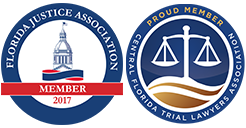 Now that Hurricane Irma is over and Florida residents are putting their lives and homes back in order, many homeowners will be looking for their insurance companies to pay for the damages that were incurred. In an effort to answer any questions you may have regarding damages, insurance and what you should do, our staff has put together the following information as a guide to help all Florida residents and our neighbors here in the Orlando Metropolitan area and Central Florida.
Now that Hurricane Irma is over and Florida residents are putting their lives and homes back in order, many homeowners will be looking for their insurance companies to pay for the damages that were incurred. In an effort to answer any questions you may have regarding damages, insurance and what you should do, our staff has put together the following information as a guide to help all Florida residents and our neighbors here in the Orlando Metropolitan area and Central Florida.
Florida Insurance Laws In Regards to Hurricane Irma’s Damage to Your Property
It is important to note all of the following regarding insurance in Florida:
– Hurricane deductibles are a percentage or dollar deductibles that are higher than for other causes of loss. They are calculated as a percentage of the dollar amount of coverage on the dwelling or as a flat dollar amount like a standard deductible. By Florida statute, the application of hurricane deductibles is triggered by windstorm losses resulting only from a hurricane declared by the National Weather Service. Hurricane deductibles apply for damages that occur from the time a hurricane watch or warning is issued for any part of Florida. They are also covered anytime hurricane conditions exist throughout the state, plus for up to 72 hours after such a watch or warning ends,
– Hurricane deductibles and their triggers are set by law and are the same for the private, or regular market, as well as Florida’s Citizens Property Insurance Corporation (CPIC), the state-run program which provides property insurance to consumers. The hurricane deductible applies only once during a hurricane season. All insurers must offer a hurricane deductible of $500, 2 percent, 5 percent and 10 percent of the policy dwelling or structure limits. The percentages are based on the total value of the home (e.g., a 10 percent hurricane deductible on a $200,000 home would be $20,000). In some cases a deductible of more than 10 percent is permissible. For example, for homes that are insured for less than $500,000, the deductible can be higher than 10 percent if the homeowner states the dollar value of the deductible in a letter to the insurer. The deductible must be stated in the policy as a dollar amount regardless of the percentage.
– Property insurance covers damage from windstorms, such as hurricanes and tornadoes, to the “residence premises,” whether it is a single-family home, a duplex where the policyholder lives in one of the units, or any other building where the policyholder resides as shown on the insurance declarations page. A standard homeowners policy also applies to attached structures, such as a garage or deck, and “other structures” that are unattached, such as a separate garage building or shed and swimming pools. The policy includes coverage for damage to contents.
– A renters policy covers personal belongings that are damaged by wind from the storm. Damage from flooding may be covered under some, but not all, renters policies. A separate renters flood policy can be purchased from the NFIP (National Flood Insurance Program). Damage unrelated to your personal possessions, such as part of the apartment’s structure like the walls and floor, is covered under the building owner’s policy.
– If you have purchased a co-op or condominium policy for your apartment or townhouse, you are covered for damage to the interior space of your home. The condo association’s insurance might have coverage for your fixtures, wiring or plumbing, or it may only provide coverage from the “bare walls” and not what is behind them. You can obtain a copy of the master policy to better understand what is covered.
Additionally, Florida Statutes Section 627.701(4)(a) provides that there is mandatory policy language regarding separate hurricane deductibles:
– Any policy that contains a separate hurricane deductible must on its face include the statement: “THIS POLICY CONTAINS A SEPARATE DEDUCTIBLE FOR HURRICANE LOSSES, WHICH MAY RESULT IN HIGH OUT-OF-POCKET EXPENSES TO YOU.”
– Any policy containing a coinsurance provision applicable to hurricane losses must include the following statement: “THIS POLICY CONTAINS A CO-PAY PROVISION THAT MAY RESULT IN HIGH OUT-OF-POCKET EXPENSES TO YOU.”
Flood Coverage in Florida – Questions and Answers
Of the roughly $40 billion in flood damages caused by Hurricane Harvey in Texas and Louisiana, it is estimated that over seventy percent (70%) of the damages to homes and houses caused by the flooding won’t be covered by any insurance. It turns out that very few of the damaged homes were actually covered by any flood insurance at all. It’s important that everyone is aware that their standard homeowner’s and renters insurance policies do not cover flood damage. This includes any damages caused from a storm surge. Flood coverage requires a separate policy from the federal government’s National Flood Insurance Program (NFIP), or from some private insurance companies. Many people have been asking the following questions:
Is property damage from a storm surge considered flood damage?
Yes, it is—and, therefore, storm surge is covered by your flood insurance policy. Remember that a standard homeowners insurance policy does not cover damage from floods, such as flooding from a storm surge. Again, a separate policy is required.
What is considered the “official” definition of a flood? If there is only water on my property in my neighborhood, is that considered a flood?
Flood damage is caused by an overflow of inland or tidal waters and is defined as a general and temporary condition of partial or complete inundation of two or more acres and two or more properties of what is normally dry land. So if only your property in your neighborhood is damaged, then that is not considered flood related.
What about my car and other vehicles that were damaged by Irma?
– Flood damage to vehicles, including flooding from a storm surge, is covered by your auto insurance if you have purchased comprehensive coverage, also known as “other than collision” coverage, which is optional with a standard auto policy. Four out of five drivers choose to buy comprehensive coverage.
What about FEMA?
If you have flood damage, FEMA’s insurance policy requires a Proof of Loss form be submitted within sixty days unless FEMA extends the deadline. The Proof of loss form requires you to state the value of the damage to your home and contents and provide an estimate to repair or replace your home as well as a contents list providing a description of your contents, age, quantity, and purchase value.
What Should I do if Irma Caused Me Damage?
As Irma caused various damage across Florida, many people are confused as to what is covered and what they should do. Long waits on calls to insurance companies are still being seen, leading to some frustration and confusion. Here are some recommendations and information from the International Hurricane Institute that may help you:
– Do not wait until a claims adjuster arrives to make temporary repairs that will prevent further damage. Most insurance policies will reimburse you for the expense of making such reasonable and necessary repairs, up to a specified dollar amount. In fact, most policies require you to take these preventive steps. Be sure to save all the receipts from purchases related to your repairs so you can be reimbursed.
– File a claim even if you think that the damage may be less than your deductible. Sometimes there may be additional damage that becomes evident in the months following a significant storm. Filing a claim, even if the damage total is under your deductible, will protect you in the event further repairs are needed. Additionally, if your home suffers further damage from more than one storm in a single season, the damage from the first storm may apply towards the deductible amount.
– Do not solely rely on your insurance company adjuster to handle your claim. You or someone on your behalf must document the extent of wind damage versus the extent of flood damage if any. Get your own estimate to repair the damage, construction prices usually double after a hurricane and stay that way for years until the contractor’s pipeline of work begins to dry up, I can assure you this phenomenon will not be reflected on any insurance company estimate.
– Hire someone with extensive experience in handling hurricane claims. Insurance policies are full of “pitfalls” with deadlines that take effect immediately after the damage occurs, and others that are only sixty days away. Any misstep on your part can exclude insurance coverage. Despite their assurances, the adjuster hired by your insurance company will not be able to guide you through this process.
– Do not rely solely on the opinion of an engineer hired by the insurance company. After Hurricane Katrina in Mississippi and Hurricane Sandy in New York, it was discovered that the engineering firms had falsified reports. Following a hurricane, some insurance companies may include food-spoilage coverage, usually for a set amount that can range from $250 to $500 per appliance. Check with your insurance policy.
– Homeowners insurance policies do not pay for removal of trees or landscaping debris that did no damage to an insured structure. If a tree hit your home, that damage is covered; if your tree fell on your neighbor’s home, his or her insurance company would pay for the damage. However, if the felled tree was poorly maintained or diseased and you took no steps to take care of it, their insurer may seek reimbursement from you for the damages.
– Most homeowners and renters policies cover additional living expenses—any costs over and above your customary living expenses—when you are displaced from your home by a covered loss (such as wind damage) and need temporary shelter. The amount is generally 20% of the total insurance you have on your home. Some insurers pay more than 20%, while others limit additional living expenses to an amount spent during a specific time period. Keep all your receipts to document your expenditures. Generally, expenses related to evacuation are only covered if there is also damage to your property. This is because the coverage is part of the property policy.
When consumers are dealing with large and powerful insurance companies, their ability to hire an attorney on a contingency basis in order to recover proper damages due is their most powerful tool. Please contact us online or call us now at (407) 423-1313 for a no obligation Free Consultation if you are having a problem obtaining a fair result from your insurance company. Hurricane Irma caused severe damage to many homes in the Central Florida area and all of us here at The Law Office of Mark A. Risi will do our best to help you regarding the collection of damage payments.
